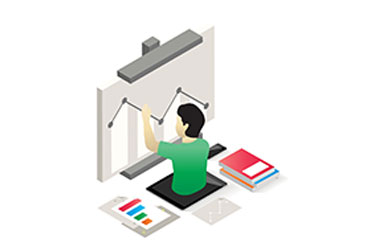

Job Search Strategies: Finding employment can be a daunting task, especially for those navigating the job market for the first time or transitioning between careers. Career counselors offer guidance on effective job search strategies, including resume writing, cover letter preparation, networking techniques, and leveraging online job search platforms.
Interview Preparation: Securing a job often requires performing well in interviews. Career counselors help individuals prepare for job interviews by conducting mock interviews, providing feedback, and offering tips on how to articulate their skills and experiences effectively, thereby increasing their confidence and chances of success.
Overcoming Challenges: Career counseling provides support to individuals facing various career-related challenges, such as job loss, career transitions, workplace conflicts, or lack of career advancement opportunities. Counselors offer a safe and non-judgmental space for clients to explore their concerns, develop coping strategies, and navigate obstacles effectively.

Personal and Professional Growth: Beyond immediate career goals, career counseling fosters personal and professional growth by encouraging self-awareness, resilience, adaptability, and continuous learning. Counselors help individuals identify opportunities for development, set meaningful goals, and navigate career transitions with confidence and agility.
Work-Life Balance: Achieving a healthy work-life balance is essential for overall well-being and job satisfaction. Career counselors assist individuals in aligning their career aspirations with their broader life goals, helping them prioritize self-care, manage stress, and cultivate fulfilling careers that support their overall quality of life.
Long-Term Career Planning: Career counseling encourages individuals to take a proactive approach to their career development by engaging in long-term planning and goal-setting. Counselors help clients map out realistic career trajectories, anticipate future opportunities and challenges, and make strategic decisions to advance their careers over time.
Advocacy and Support: Career counselors advocate for the needs and interests of their clients, serving as allies and champions in their professional journeys. Whether advocating for workplace accommodations, negotiating salary and benefits, or facilitating access to career development resources, counselors are dedicated to supporting their clients' success and well-being.
Skill Development and Enhancement: In today's rapidly evolving workplace, acquiring and honing relevant skills is essential for career success. Career counseling helps individuals assess their skills, identify areas for improvement, and develop strategies for enhancing their professional competencies through training, education, and experiential learning opportunities.

The assessment helps you better understand your strengths and personality. It helps you identify your best fit career. More than 678+ career professionals have worked to design, test and update this career assessment. Thousands of students have been giving this assessment each year. The testing algorithm is constantly updated with emerging careers options.

This assessment is based on personality type – the innate way people naturally see the world and make decisions – a set of basic drives and motivations that remain constant throughout a person’s life. The model of personality type is non-judgmental. There are no types that are better or worse, or healthier or more frail. Each type has its own inherent strengths and potential challenges. Personality type does not predict intelligence; rather it identifies important natural predispositions and tendencies.

The assessment is based on the Theory of Multiple Intelligences developed by Dr. Howard Gardner in 1983. The theory has been tested under Project SUMIT and found to improve student performance in 78% of the cases. The assessment uses proprietary technology to match your intelligences to your best fit careers.

The assessment is based on The Learning Style Questionnaire developed by Rita and Kenneth Dunn. The questionnaire was studied by their colleague Gary E. Price who did a content analysis to discover the consistent factors in the questionnaire. As a result of this analysis the Learning Style assessment was made. The assessment reveals how you prefer to study, concentrate and learn. The assessment analyses your learning preferences for immediate environment, emotionality, sociological needs and physical needs.

The assessment helps you determine which stream to take after 10th class. It is based on the RIASEC theory and determines your verbal, numerical, clerical, spatial and reasoning aptitude. Based on your aptitude and personality, the assessment determines the most suitable stream for you. The aptitude section calculates your strengths and weaknesses to determine abilities required to study the four streams. The interest section helps to determine your feeling of wanting to know or learn about something.